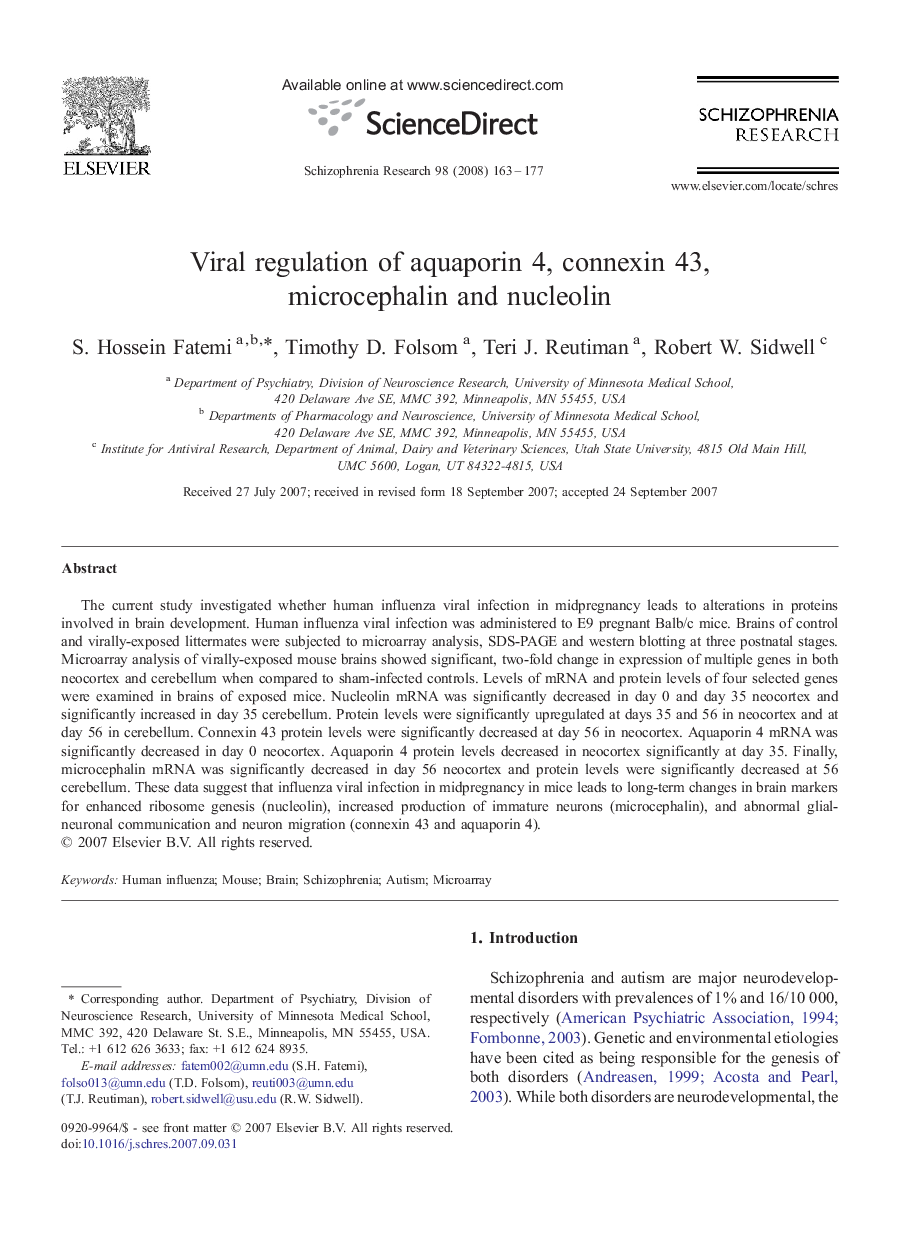| Article ID | Journal | Published Year | Pages | File Type |
|---|---|---|---|---|
| 340036 | Schizophrenia Research | 2008 | 15 Pages |
The current study investigated whether human influenza viral infection in midpregnancy leads to alterations in proteins involved in brain development. Human influenza viral infection was administered to E9 pregnant Balb/c mice. Brains of control and virally-exposed littermates were subjected to microarray analysis, SDS-PAGE and western blotting at three postnatal stages. Microarray analysis of virally-exposed mouse brains showed significant, two-fold change in expression of multiple genes in both neocortex and cerebellum when compared to sham-infected controls. Levels of mRNA and protein levels of four selected genes were examined in brains of exposed mice. Nucleolin mRNA was significantly decreased in day 0 and day 35 neocortex and significantly increased in day 35 cerebellum. Protein levels were significantly upregulated at days 35 and 56 in neocortex and at day 56 in cerebellum. Connexin 43 protein levels were significantly decreased at day 56 in neocortex. Aquaporin 4 mRNA was significantly decreased in day 0 neocortex. Aquaporin 4 protein levels decreased in neocortex significantly at day 35. Finally, microcephalin mRNA was significantly decreased in day 56 neocortex and protein levels were significantly decreased at 56 cerebellum. These data suggest that influenza viral infection in midpregnancy in mice leads to long-term changes in brain markers for enhanced ribosome genesis (nucleolin), increased production of immature neurons (microcephalin), and abnormal glial-neuronal communication and neuron migration (connexin 43 and aquaporin 4).
